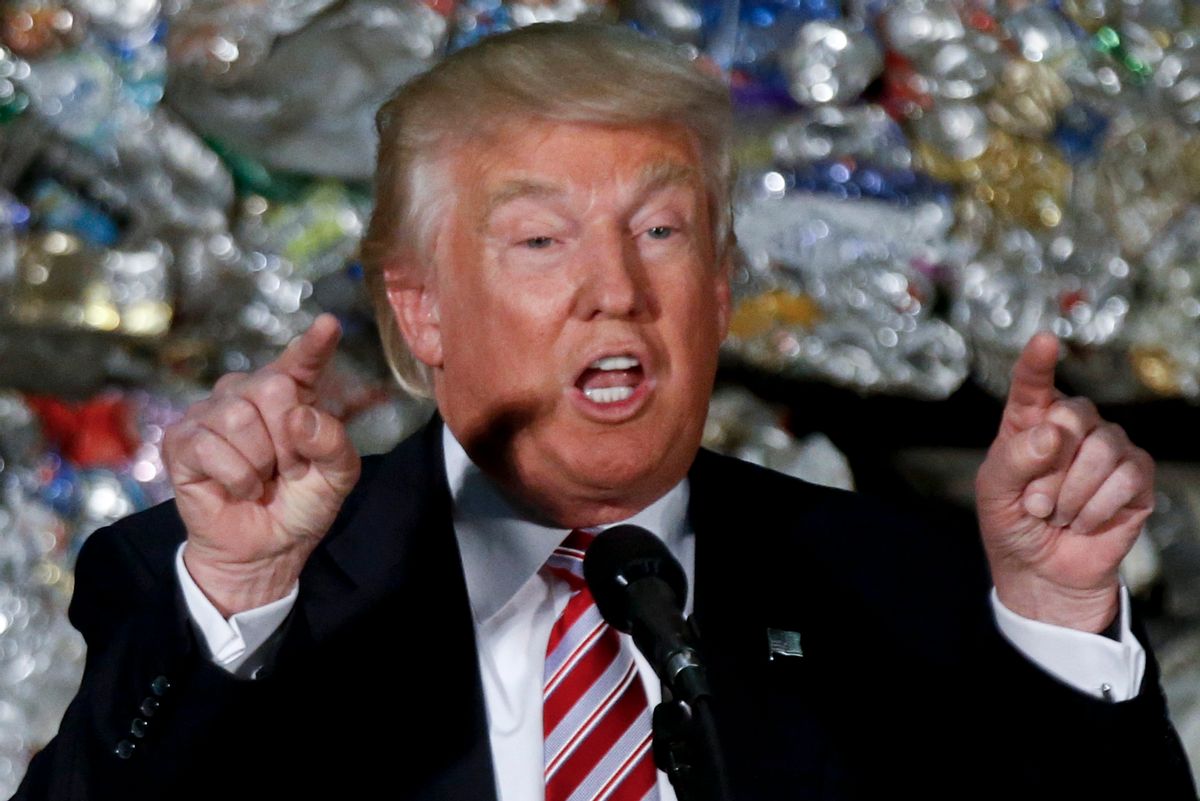There are lots of ways the political press continues to normalize President-elect Donald Trump’s often radical behavior. From regurgitating his vague tweets as news while he refuses to grant press conferences, to shying away from calling the serial prevaricator a liar, journalists continue to play nice.
Here’s another way Trump’s getting the benefit of the doubt: He’s a wildly unpopular political figure, yet the press continues to gloss over that fact while granting him soft coverage.
In terms of polling data, there’s virtually no good news for Trump. The results generally point in the same direction: He’s widely disliked and inspires little confidence in his presidential abilities.
This stands in stark contrast with characteristically stronger bipartisan approval for presidents-elect in recent decades. For instance, in 2008, "50 percent of John McCain's voters approved of Barack Obama's handling of his presidential transition,” noted an NBC News report. And as NPR reported, “Even after a prolonged recount and Supreme Court decision, George W. Bush received 29 percent approval from Democrats in 2001.” This is 14 percentage points higher than the same Pew statistic for Trump.
Trump’s contrast with Obama in late 2008 is stunning: Obama entered 2009 with a 68 percent favorable rating. Today, Trump’s favorable rating stands at an anemic 43 percent. And if history is any indication, that rating is almost certain to go down once the new president takes office.
A plurality of Americans think he will be a “poor” or “terrible” president. His cabinet picks enjoy historically little support, and 54 percent of adults say they’re either "uncertain (25 percent) or pessimistic and worried (29 percent) about how Trump will perform during his presidency." Meanwhile, 68 percent would describe the president-elect as "hard to like," and less than half of Americans are confident in Trump’s ability to handle an international crisis.
Those numbers are off-the-charts awful for an American president-elect. On average, 71 percent of Americans were confident that Presidents Obama, George W. Bush and Bill Clinton could handle an international crisis, when polled after each was newly elected. Today, just 46 percent are confident about Trump's ability to handle such a crisis.
Modern American history hasn't seen anything like this. So what explains the media's passive, often genuflecting coverage of Trump since November?
“Watching the formation of Donald Trump’s presidency, the press coverage is disappointingly weak and thin,” John Dean recently wrote in Newsweek. “The news coverage of the transition of the most unqualified man ever elected to the White House is as weak and wishy-washy as it was at the outset of his campaign.”
And as Media Matters stressed last month:
In the weeks since Election Day, political journalism has largely fallen short both in style and substance. Journalists watching from the sidelines have been reduced to parroting Trump’s publicly available tweets — allowing him to drive the news cycle — and have bungled one of the most important roles the press plays during a transition period: the vetting of President-elect Donald Trump’s cabinet nominations and appointments.
If Trump had just posted a 49-state, Reagan-esque landslide victory, I could more readily understand why the press would be acquiescing so regularly. But Trump just made history by losing the popular tally by nearly three million votes and remains, without question, the least popular president-elect since modern-day polling was invented.
Yet members of the press seem unduly intimidated by his presence, and have even rewarded him with chatter of an invisible “mandate.” (He has none.) Noted John Nichols at the Nation, “It's absurd to claim that [Trump's] administration and this Congress enjoy enthusiastic popular support. They don’t.”
Yes, some news outlets have highlighted Trump’s miserable standing with the public, and what the political implication might be for him this year. “Trump will enter the White House as the least-popular incoming president in the modern era of public-opinion polling,” Politico announced in late December.
But those kinds of stories have made for spot coverage, passing reports here and there about Trump’s approval ratings. But why isn’t that the running narrative about Trump's presidential transition? Where is the endless cable news hand-wringing about Trump standing poised to be a failed president even before he’s inaugurated? Or about the mountainous challenge he faces in trying to lead a country that largely does not support him or even find him likable?
Does anyone think that if Hillary Clinton had won in November while badly losing the popular vote to Trump, and then posted historically awful approval ratings during her transition, that story would not dominate Beltway coverage day after day, week after week?
And don’t forget the media's entrenched fascination with Obama’s public approval during his presidency, particularly the desire to depict “collapsing” support when, in fact, Obama’s approval rating remained stubbornly stable for years.
There’s a glaring Trump transition story hiding in plain sight: He’s historically unpopular. The press ought to start telling that tale on a daily basis.

Shares